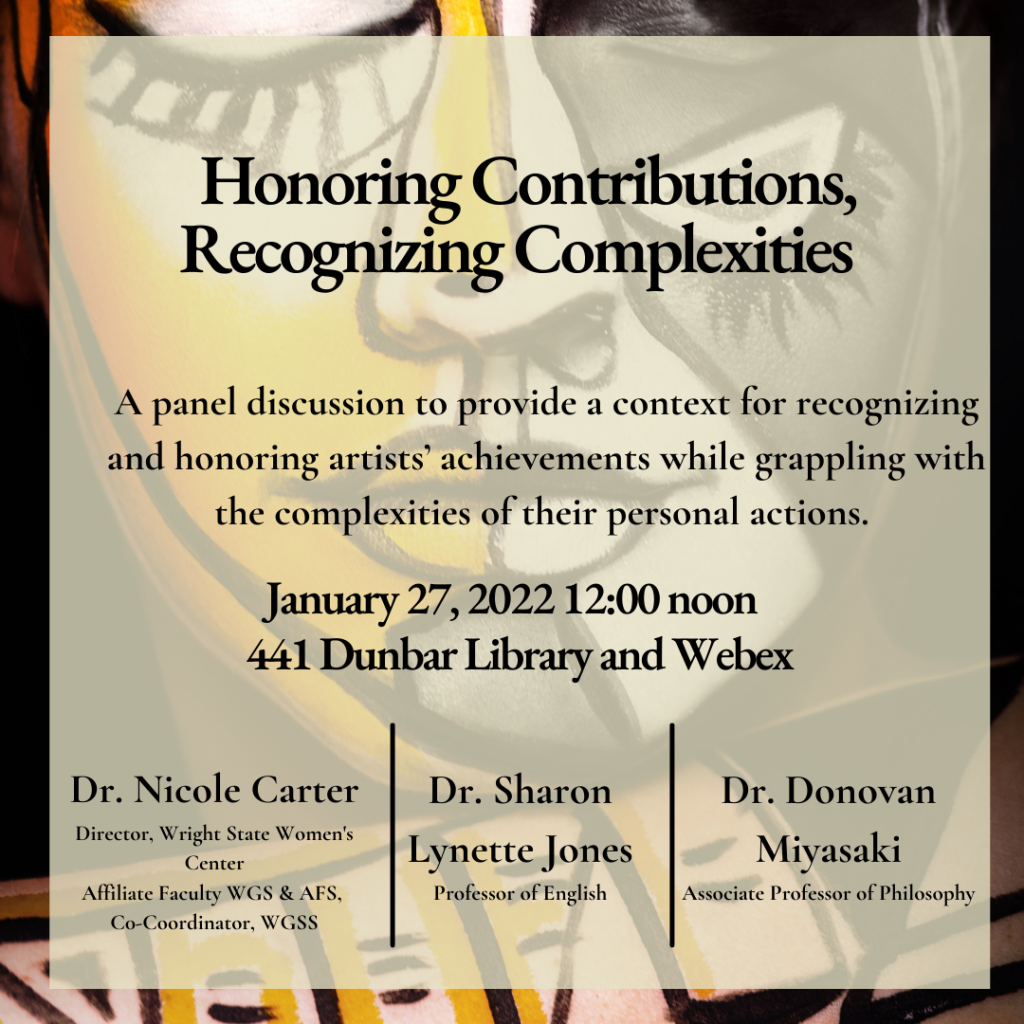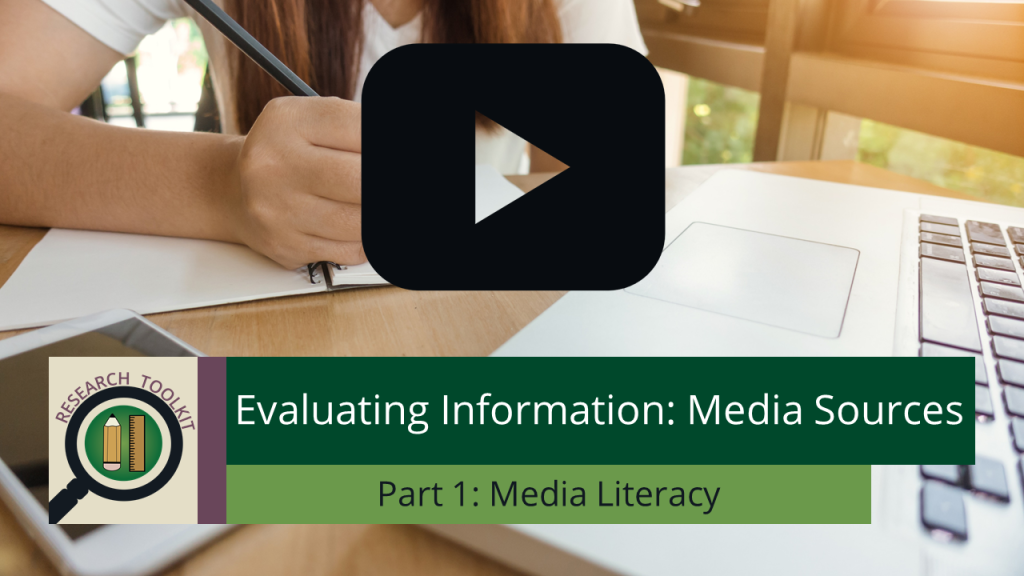The question of whether to separate an artist’s contributions from the artist’s personal action is nothing new. Caravaggio was an influential Baroque painter whose techniques have been said to change Western art, but he was violent and a murderer. Wagner was a composer who was known for expanding and bringing innovation to opera but was a noted anti-Semite and racist. Picasso, Hitchcock, Rowling…the list goes on. Can – and should – the artist be separated from the art? This panel discussion will provide a context for recognizing and honoring artists’ achievements while grappling with the complexities of their personal actions.
Join us on January 27th at noon in Room 441 Dunbar Library or on Webex as panelists Dr. Nicole Carter, Director of the Wright State Women’s Center, Affiliate Faculty in WGS &AFS, and Co-Coordinator of Women, Gender, and Sexuality Studies; Dr. Sharon Lynette Jones, Professor of English; and Dr. Donovan Miyasaki, Associate Professor of Philosophy address this question. Panelists will each address the question, followed by an opportunity for audience members to ask questions for discussion.
For additional information, please email Mandy Shannon at [email protected]. Registration is encouraged and available online.


